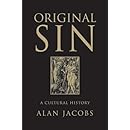Typically, Christians are hawks when it comes to spotting the
content of shows, movies, music, and other entertainments flowing from the steady stream of popular culture. The vehicle, or
form, that transports such content (e.g. television, radio, computer, etc), however, tends to be overlooked. Cognizance of the form is perhaps just as important, maybe even more important given its insidious nature. As Marshall McLuhan famously said, "the medium is the message". In other words, the vehicles which supply our music, stories, and shows are teachers as well, conveying their own set of messages. Not just Desperate Housewives or 24, but television itself shapes our individual and corporate consciousnesses in profound ways.
Shedding light on the matter, sociologist Peter Berger explains the way society or culture impacts us, both corporately and individually, by employing a three-pronged dialectic: externalization, objectivation, and internalization. For Berger, externalization is the process whereby individuals create through both mental and physical labor. Having been created, things become distinct from the producer and begin to take on a life of their own (objectivation). It is at this point that they are used by individuals and begin to force their logic on the user (internalization)(for more on this see
Berger's The Sacred Canopy). The thing produced has a way of shaping the user's mind. Someone has said that to a man with a hammer, everything becomes a nail. This gets at the idea. The tools we use shape the way we think. Here is another example: I have a TiVo which I love. Fast-forwarding and rewinding are my most proficient skills. Oddly enough, I often find myself wanting to rewind reality now that I have a become a sharpshooter with the remote (too much TV?). This is just one example of the way our tools (be it hammer or TiVo) impact our consciousness.
So what do we do with this? I think it is helpful in diagnosing problems we might otherwise overlook. For example, a
content-only Christian mind might be elated that pornography is in no way included in his web-surfing; he's occupied with other, safer waves. What is neglected, though, is the massive amount of time spent on the web and the impact this has on his mental habits. Perhaps the disjointed nature of the web is creating difficulty in maintaining long, sustained meditation or reflection on a particular subject. David Lyon has said that the Internet’s openness and fluidity erodes authority structures because "it knows no priorities, respects no precedents, promotes no principles" (
Jesus in Disneyland, 67). Maybe the Internet has bolstered his sense of autonomy, empowerment, and self-sufficiency by undermining any outside authority. This would impact the way he relates to God and neighbor. Finally, the Internet's bias toward efficient communication could conceivably hamper his non-web-based communication. His mind, saturated by the web, might be producing soggy communication and words.
This is not to say that the Internet should be avoided altogether (this is a blog after all). What I am suggesting is that Christian critique and concern extend beyond
content to include
form as well.
In addition to the books mentioned above, another book that has helped me on this issue is
All God's Children and Blue Suede Shoes, by Ken Myers.











